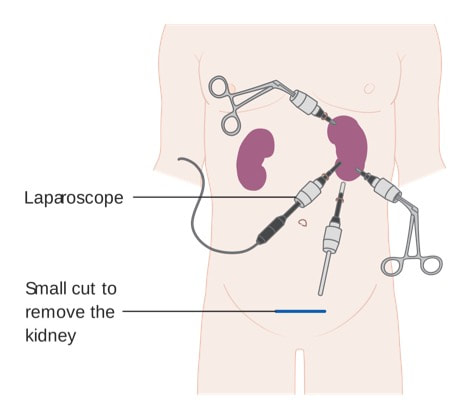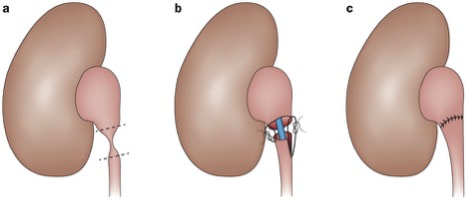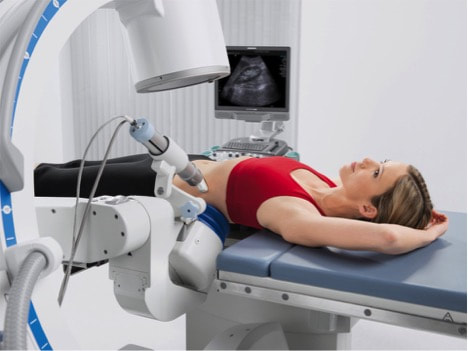Practice Specialties
-
Advanced Cancer Care
-
Minimally Invasive Surgery
-
Extra Corporeal Shock Wave Lithotripsy (ESWL)
<
>
At Advanced Urology, we are specialty-trained to manage a wide variety of cancers of the urinary system and the male reproductive system. This includes prostate, kidney, bladder, testicular, and adrenal tumors. We are experienced in the diagnosis and successful treatment your cancer, and are passionate and dedicated in providing the most compassionate and effective care available during this difficult time.
FAST EVALUATION
As with all other forms of cancer, the earlier cancer is detected, the greater the chance of successful treatment. That is why we offer next day appointments for evaluation and discussion of treatment options. We will meet with you to design the most appropriate, efficient work-up for your condition, then help you decide on what treatment is right for you.
EXPERIENCED SURGEON
Dr. Gafoor has performed hundreds of surgeries using both laparoscopic and open techniques for the treatment of all urological tumors. He trained both locally and internationally (residency at University of Toronto, fellowship trained in Melbourne, Australia). He works closely with other specialists in the field of cancer care to offer a holistic treatment plan specifically designed for you, by focusing on all aspects of your overall health.
LOCAL FOLLOW-UP
Most urological cancer, when detected early, can be treated and cured with a very low chance of recurrence. However, we appreciate that sometimes recurrences do occur. After your cancer treatment is complete, we continue to keep watch over you through well- designed and universally accepted surveillance protocols. This may include routine blood work or follow up imaging to ensure that you remain cancer free. In this way, recurrences can be picked up early, and managed in the most appropriate manner to ensure an excellent outcome for you.
FAST EVALUATION
As with all other forms of cancer, the earlier cancer is detected, the greater the chance of successful treatment. That is why we offer next day appointments for evaluation and discussion of treatment options. We will meet with you to design the most appropriate, efficient work-up for your condition, then help you decide on what treatment is right for you.
EXPERIENCED SURGEON
Dr. Gafoor has performed hundreds of surgeries using both laparoscopic and open techniques for the treatment of all urological tumors. He trained both locally and internationally (residency at University of Toronto, fellowship trained in Melbourne, Australia). He works closely with other specialists in the field of cancer care to offer a holistic treatment plan specifically designed for you, by focusing on all aspects of your overall health.
LOCAL FOLLOW-UP
Most urological cancer, when detected early, can be treated and cured with a very low chance of recurrence. However, we appreciate that sometimes recurrences do occur. After your cancer treatment is complete, we continue to keep watch over you through well- designed and universally accepted surveillance protocols. This may include routine blood work or follow up imaging to ensure that you remain cancer free. In this way, recurrences can be picked up early, and managed in the most appropriate manner to ensure an excellent outcome for you.
Minimally Invasive Surgery (MIS) refers to an approach to treatment that requires a smaller incision or no incision relative to what has been traditionally used. This can mean replacing one large incision with several smaller incisions, as is done in laparoscopy, with all of the surgery being done on the inside with the use of small instruments and cameras. This approach to surgery is just as effective as traditional open surgery, yet offers shorter recovery time and quicker return to work or normal activities, involves less pain, and often results in more successful outcomes. Laparoscopic surgery is available for treatment of all urologic cancers including prostate, kidney, bladder, and adrenal. It is also a preferred treatment for benign conditions such as BPH, UPJ obstruction, kidney stones, and renal cysts.
Alternatively, Endoscopic surgery offers the same advantages over open surgery but instead uses the natural openings of the body, so that no incision or cut at all is made. Most commonly, this is offered for urinary stone disease, but has other applications such as blockage of the kidney or ureter, enlargement of the prostate causing urine flow problems, and early bladder cancer.
Types of Minimally Invasive Surgery: Percutaneous Nephrolithotomy (PCNL)
Ureteroscopy
Laparoscopic Surgery
Some of the urologic procedures that can be performed laparoscopically include:
Alternatively, Endoscopic surgery offers the same advantages over open surgery but instead uses the natural openings of the body, so that no incision or cut at all is made. Most commonly, this is offered for urinary stone disease, but has other applications such as blockage of the kidney or ureter, enlargement of the prostate causing urine flow problems, and early bladder cancer.
Types of Minimally Invasive Surgery: Percutaneous Nephrolithotomy (PCNL)
Ureteroscopy
Laparoscopic Surgery
Some of the urologic procedures that can be performed laparoscopically include:
- Kidney surgery
- Laparosocpic radical nephrectomy: Surgery can be performed to remove a kidney harboring a dangerous cancer
- Laparosocpic partial nephrectomy: If part of the kidney contains a caner, it may be possible to remove just the offending partion while preserving the rest of the kidney, while the offering the same high cure rate and low recurrence rate as a radical surgery.
- Laparoscopic pyeloplasty: The kidney may be obstructed at the junction with the ureter (tube that drain the kidney to the bladder). You may have been born with this or acquired this from scarring. Pyeloplasty allows us to remove the obstructed segment so your kidney can drain, lowering the risk of stone formation, infection or loss of kidney function.
- Laparoscopic approach to kidney
- Laparoscopic repair of obstruction
Endoscopic Surgery
Percutaneous Nephrolithotomy (PCNL) is the safest, most efficient treatment for large stones in the kidney. A small incision (cut) is made in the side, just large enough to allow a rigid telescope (nephroscope) to be passed into the part of the kidney where the stone is located. The nephroscope breaks up the stone and suctions out the pieces. You can begin normal activities after discharge home and may return to work shortly after.
Click here for more information
Ureteroscopy (URS)
URS can be performed to diagnose problems like blood in the urine or blockage of the ureter, or most commonly to treat urinary stones. We can employ such advanced technologies as lasers to break kidney or ureteric stones, and remove them with tiny baskets, with minimal invasiveness and without having to make any incision.
Click here for more information
TURP
This represents the Gold standard of surgical interventions for enlarged prostates causing urine flow problems.
Click here for more information
TURBT
It is often possible to treat early bladder cancers by an endoscopic procedure with a scope that is inserted through the urethra into the bladder. It is generally performed in the hospital setting as an outpatient with the patient anesthetized. TURBT is the first-line treatment to diagnose, stage, and treat visible tumors. 75% of bladder cancers can be treated with way with excellent chances of cure and low probability of recurrence or progression of the tumor.
Click here for more information
Endoscopic Surgery
Percutaneous Nephrolithotomy (PCNL) is the safest, most efficient treatment for large stones in the kidney. A small incision (cut) is made in the side, just large enough to allow a rigid telescope (nephroscope) to be passed into the part of the kidney where the stone is located. The nephroscope breaks up the stone and suctions out the pieces. You can begin normal activities after discharge home and may return to work shortly after.
Click here for more information
Ureteroscopy (URS)
URS can be performed to diagnose problems like blood in the urine or blockage of the ureter, or most commonly to treat urinary stones. We can employ such advanced technologies as lasers to break kidney or ureteric stones, and remove them with tiny baskets, with minimal invasiveness and without having to make any incision.
Click here for more information
TURP
This represents the Gold standard of surgical interventions for enlarged prostates causing urine flow problems.
Click here for more information
TURBT
It is often possible to treat early bladder cancers by an endoscopic procedure with a scope that is inserted through the urethra into the bladder. It is generally performed in the hospital setting as an outpatient with the patient anesthetized. TURBT is the first-line treatment to diagnose, stage, and treat visible tumors. 75% of bladder cancers can be treated with way with excellent chances of cure and low probability of recurrence or progression of the tumor.
Click here for more information
Extracorporeal Shock Wave Lithotripsy (ESWL) is one of the most common treatments for kidney stones world wide. Shock waves from a machine placed against the skin are targeted at the kidney stone, causing it to fragment into tiny pieces that then pass safely in the urine. This procedure is completely non-invasive and can be done under mild sedation, making it a particularly safe option for patients with health issues that would make general anesthesia risky. Click here for More Information



